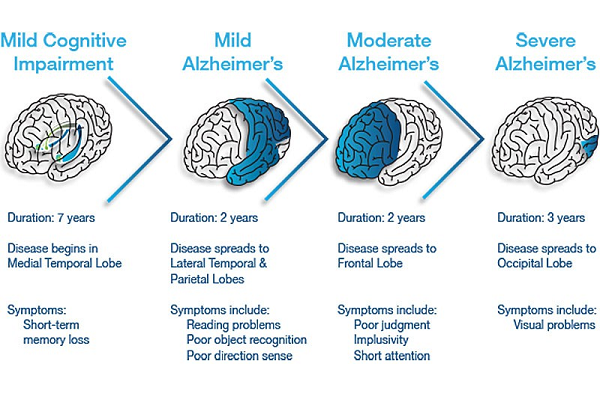
Anytime that we face a new experience it’s a little frightening, because it feels foreign to us. If you haven’t witnessed the changes in behavior of someone who has Alzheimer’s disease before, you might be surprised by your own feelings and reactions.
At first, you may feel a host of new emotions like feeling sad, frustrated, scared, and confused. It helps caregivers to learn how hiring for Alzheimer care can make everything a little easier, not only for the person with the disease, but also for the caregiver. Here’s a quick guide to help you recognize the three stages of the disease and how to get Alzheimer care.
The symptoms of Alzheimer’s disease manifest differently in each person, but there are some commonalities in the symptoms and stages of the disease. Learning about the stages of Alzheimer’s disease helps you to recognize which stage the person is in, so you can adjust their care to meet their needs.
Unlike other disorders and diseases, Alzheimer’s disease doesn’t hit all at once. It starts slowly and the symptoms gradually progress. The rate of moving from one stage to another varies substantially, depending upon the person. You won’t have a timeline to follow, but you will be able to detect the stage of the disease by noticing changes in behavior.
There are three distinct stages of Alzheimer’s disease:
- Mild-early stage
- Moderate-middle stage
- Severe-late stage
Three Stages of Alzheimer Care
Early Stage
One of the best things that caregivers can do is to learn as much about Alzheimer’s disease as possible during the early stage. The better you understand what the person with Alzheimer’s needs in later stages, the better prepared you will be. Take time to read and research about Alzheimer’s disease. Learn where the resources for senior caregiving are in your community and keep your notes handy.
You might be pleasantly surprised that people in the early stage of Alzheimer’s can do many of their normal daily activities without any assistance at all. Many people with the disease can still drive a car, take part in family and social activities, or even hold a job.
This is the best time to for caregivers to join a support group for caregivers of people with Alzheimer’s, so that you will learn how to take care of yourself and have a support system as the disease progresses.
Middle Stage
Brain cells continue to get damaged as the disease progresses. During the middle stage, expect for the symptoms of the disease to worsen. The affected person will have trouble forming thoughts and taking care of their daily activities. Their feelings of frustration may cause them to get angry and out of sorts. Recognize that drastic mood changes are part of this stage and try not to take it personally.
Your demands as a caregiver increase dramatically during the middle stage and they can be exhausting. This is a good time to check into finding some help, so that you can take a break, take care of yourself, and tend to your own family or personal matters.
It helps to hire an aide with experience in caring for people with Alzheimer’s disease for all or part of the day during the middle stage. This is also a good time to look for a good respite worker, who can be there when you or another caregiver cannot provide supervision.
Check with a senior social service agency or your local senior center for referrals of caregivers. You can also hire an aide privately, if you prefer.
Late Stage
People with late stage Alzheimer’s disease typically need care around the clock. You will recognize this stage if the person needs help with personal care like bathing, dressing, and eating. They may not be able to walk or talk. Because of their lack of ability to communicate, they may not be able to tell you if they are sick or hurting.
During this stage you will find it best to have 24/7 professional caregiving assistance in the person’s home to help. You may also want to explore the possibility of locating a facility that specializes in Alzheimer care and arrange for admission.
Caregivers Need Help in Every Stage
The middle and late stages are the most difficult stages for the caregiver. Caregivers need to be aware that these stages can last for many years. For this reason, it’s important to explore your options for getting qualified Alzheimer care so the caregiver can avoid getting overwhelmed and burned out. You can also look for an Memory Care Community in your area in you feel your loved one requires full-time ongoing care.


Comments